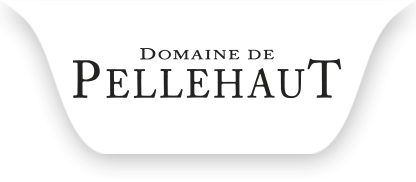In the 1980s when Mathieu Béraut joined the business, the vineyard underwent far-reaching restructuration. Until then, the estate’s principal production was armagnac and bulk white wine. Mathieu introduced red varieties and further white varieties. This was when the estate began selling bottled wine.
The grape varieties were then carefully selected according to the different terroirs.
Today, the estate grows no fewer than 15 different grape varieties.
There are 8 varieties of red (growing mainly in our argillaceous limestone soils) and seven white (the majority growing in a type of soil called boulbènes).
Ampélographie by Pellehaut :
- Local white varieties: Ugni blanc, Colombard, Folle Blanche, Gros Manseng, Petit Manseng
- White varieties from other regions: Chardonnay, Sauvignon
- Local red varieties: Tannat, Manseng Noir
- Red varieties from other regions: Merlot, Syrah, Cabernet Sauvignon, Cabernet Franc, Pinot Noir, Malbec
Most of Pellehaut’s wines are blends.
The only varieties vinified to make monovarietal wines are the Chardonnay, because of its very regular performance in the estate’s argillaceous limestone soils, and the Petit Manseng, which is an atypical variety.
At Pellehaut, we advocate traditional winemaking using the most natural methods possible. Native yeasts specially selected from the estate’s vineyard are used to ferment the wines. We do not use thermovinification, preferring to work cold to allow our native yeast to develop and conserve as much of the varietal aromas as possible.
Once the wines have finished fermenting, we keep them cool in stainless steel vats or age them in oak barrels (selected fine-grain oak from the forests of the Allier region) for up to two years.
Although not part of any prestigious appellation we are proud of our 16 different wines. We hope simply and unpretentiously to make you curious enough to discover and share the fruits of our labours – and to surprise connoisseurs with some “great” Gascogne wines.








